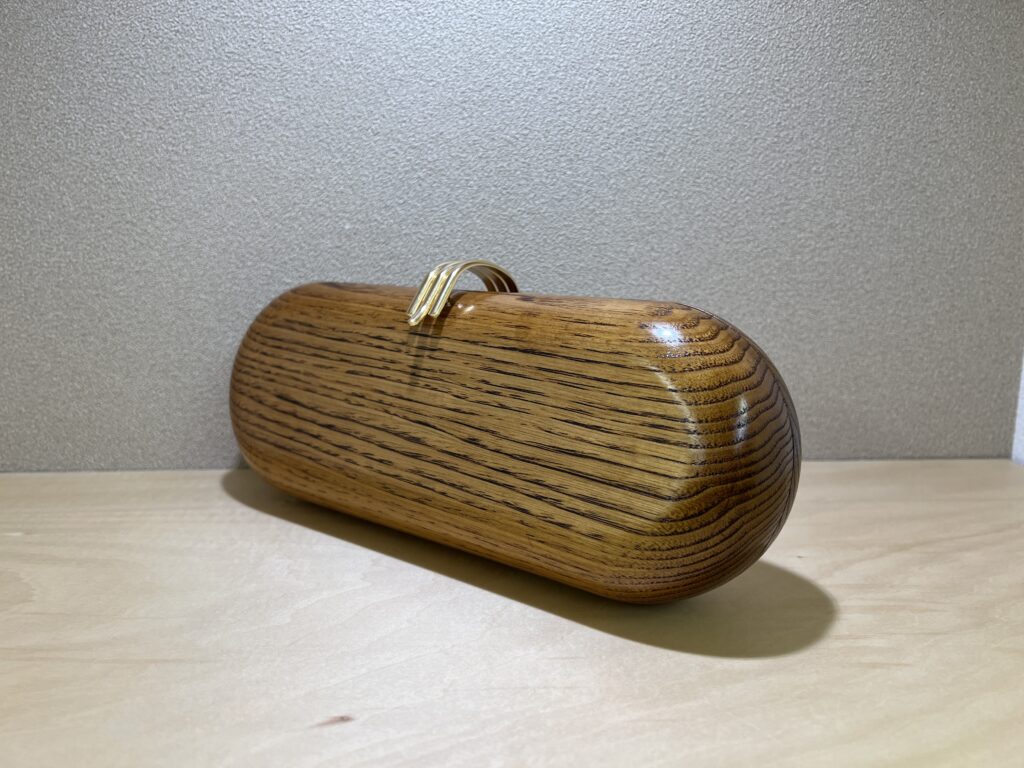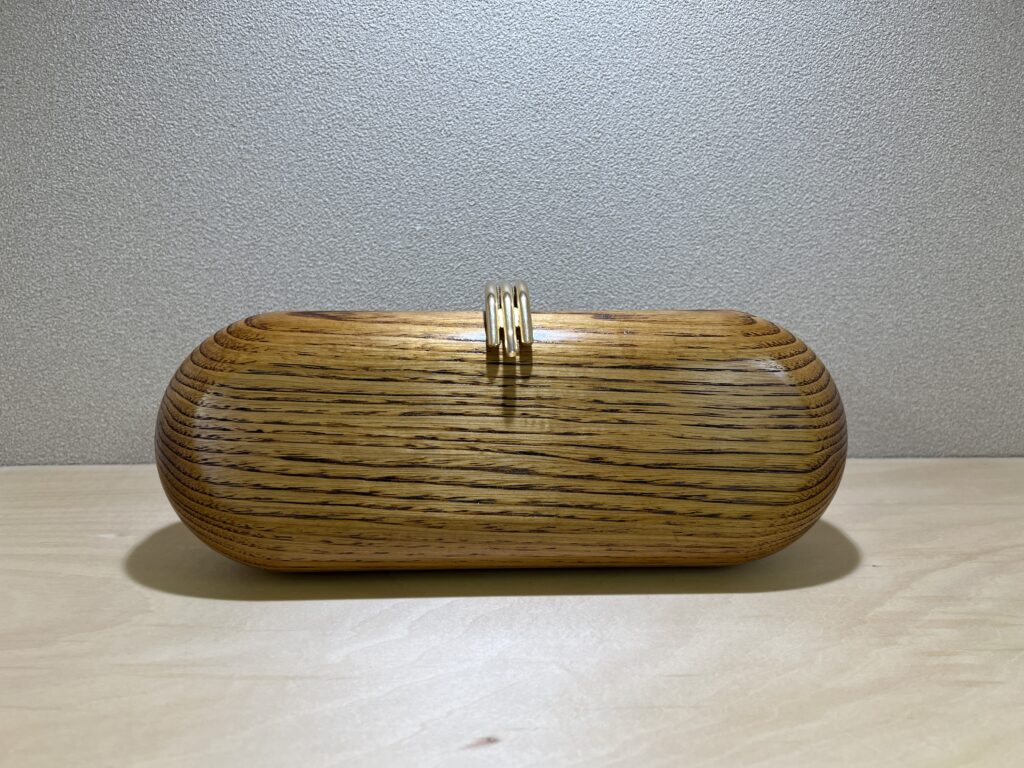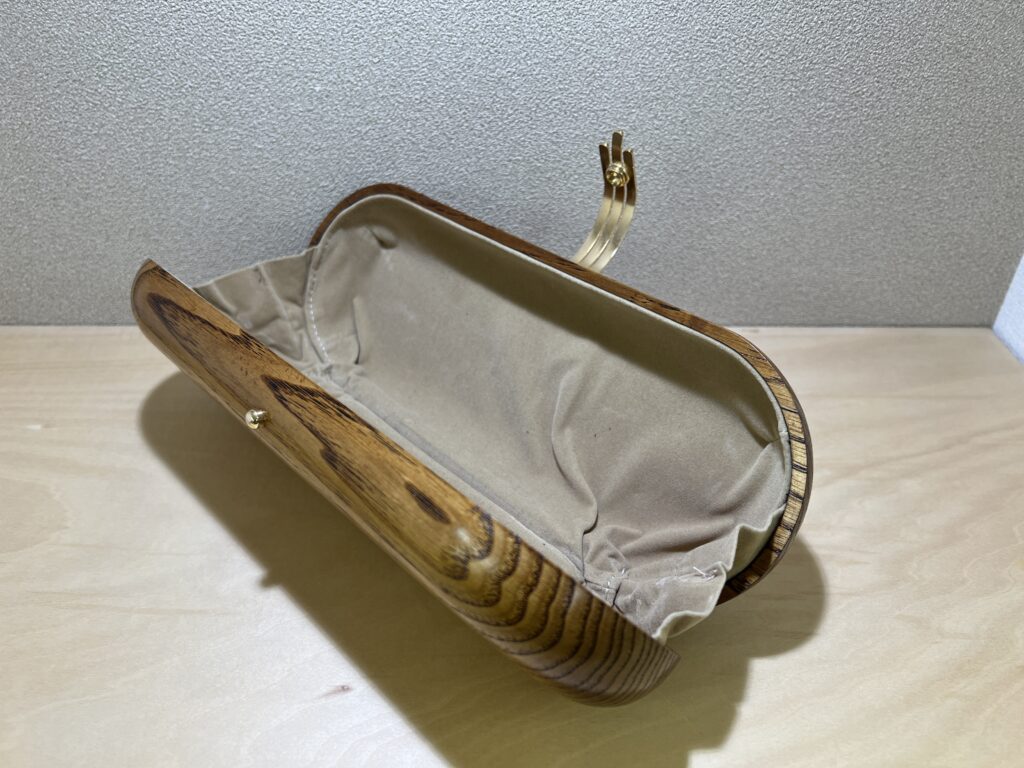

Wooden clutch bag (using thinned wood)
- Domestic Thinned Wood
- Chestnut tree, Cowhide
- Vulnerable to strong impact.
SACRA’s original wooden clutch bag is made from domestic thinned wood. These bags are sustainable and made from reused waste wood from thinning. What is thinning? Thinning is the thinning of trees in a forest that have become crowded with growth and have not yet reached the point where they can be used as primary timber. Thinning is the process of thinning out trees in a forest that has become crowded with growth but has not yet reached the stage where they can be used as primary timber, in order to promote tree growth. The objective is to prevent forest deterioration and protect the natural environment. It also allows sunlight to reach the forest floor, improving exposure to the sun and creating an environment conducive to the growth of undergrowth. This can create an environment that is conducive to the growth of undergrowth. This also helps prevent soil erosion, which is important in preventing landslides. This is very important work to prevent landslides. If thinning is not done at the necessary time, not only will the material deteriorate and lose its commercial value, but the forest will also be damaged. In addition, the forest as a whole becomes unhealthy, and the forest becomes thin and weak because thinning does not take place. Forests that are not thinned are called “korinbo” or “budding forests. When this happens, sunlight cannot reach the forest floor. Undergrowth will no longer reach the forest floor, and water retention will decrease. Trees fall over and topsoil is more easily washed away by wind and rain. In Japan, forests absorb carbon dioxide, a greenhouse gas. In Japan, forest thinning is being promoted to maintain and expand the forest’s ability to absorb carbon dioxide, a greenhouse gas..


SACRA SACRA is committed to promoting Kyoto's traditional industries to the world, as well as to promoting the/local traditional industries in a global age that transcends national borders and generations. SACRA will continue to promote Kyoto's traditional industries to the world, and to explore the role of local traditional industries in a global age that transcends national borders and generations. SACRA is also committed to preserving authentic traditional techniques and bringing the craftsmanship of artisans in small articles to people around the world. We believe that this is an important mission of SACRA.
